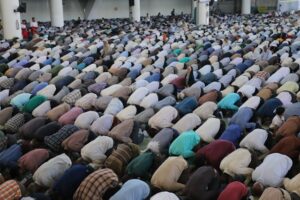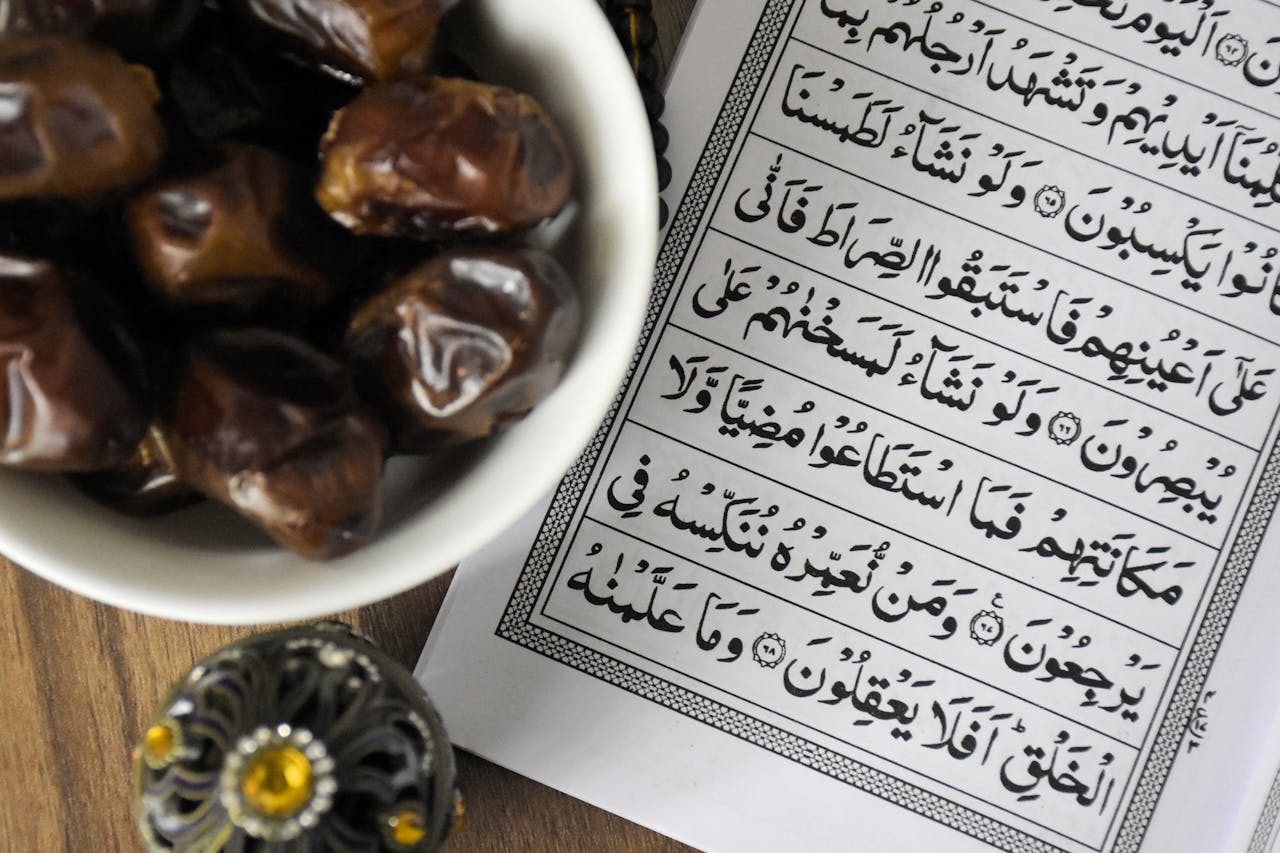As stated in the Hadeeth (narration) on the authority of Huthayfah, may Allah be pleased with him,
Fasting is one of the acts of worship that atones for one’s faults.
For believers seeking spiritual development and divine intervention, fasting outside of Ramadan is an opportunity to participate in duas.
Recognising the Importance of Dua
In Islam, making a dua is seen as a sign of one’s reliance on Allah (SWT) and an act of devotion. It represents a believer accepting Allah’s (SWT) benevolence and sovereignty when he fasted for Him, which are fundamental to religion.
People acknowledge Allah’s (SWT) infinite power and wisdom by expressing their needs, wishes, and appreciation to Him (SWT) via dua.
Non-Ramadan Fasting
All adult Muslims are required to fast throughout Ramadan, yet voluntary fasting has a value of its own. The Islamic faith strongly recommends that you fast days other than Ramadan, such as the White Days, Mondays, and Thursdays.
These voluntary fasts provide spiritual advantages and chances for personal development. Many people practice intermittent fasting, which alternates between eating and fasting times, to maintain good health.
Longevity, better metabolic health, and weight loss are just a few health advantages of this fasting approach.
How to Offer a Dua for a Fasting Away from Ramadan
In Islamic culture, sincerity, modesty, and faith are necessary for making a successful dua while fasting. Making dua requires having a pure heart, concentrating on one’s aims, and having faith in Allah’s (SWT) kindness, which is similar to keeping a fast.
When making dua for fasting outside of Ramadan, paying attention to the appropriate wording, dua etiquette, and prescribed periods for supplication is essential.
Duas for Fasting Outside of Ramadan

When fasting outside of Ramadan, several kinds of duas are prayed, including dua, for the forgiveness of previous transgressions, spiritual development and increased proximity to Allah, and fortitude and endurance to complete the fast.
1. Praying for the Beginning and Acceptance of Fasting
The purpose of reciting this dua is to ask Allah to acknowledge one’s sincerity of purpose and fast.
The translation quotes:
2. Dua for Repentance
Muslims can perform duas to petition Allah for mercy and forgiveness, and they might fast to pray for forgiveness for their sins.
The translation of this dua is:
3. Dua for Perseverance and Endurance
Muslims frequently recite duas to beg for courage, endurance, and patience to complete their fasts because it may be a physically and mentally taxing experience.
The translation of this dua is:
4. A Prayer for Spiritual Development
During their fast, Muslims may say duas in which they beg for more faith, spiritual development, and a closer relationship with Allah.
The translation of this dua is:
5. Prayer for Good Protection
Another prominent subject in dua while fasting is the need for protection against wicked acts, temptations, and harmful influences.
The translation is:
6. Dua to be Blessed and Grateful
Muslims can thank Allah for the bounties bestowed upon them and request further blessings for their family, the community, and themselves.
The translation of this dua is:
7. Dua for Fulfillment of Needs
Prophet Musa (AS) said this in prayer. The translation of this dua is:
Upon the recitation of dua, the following things happen in your life;
- Accomplishment and triumph.
- Asking Allah to provide support and guidance.
- Satisfied demands of every kind. For example, getting married, starting a business, getting a job, taking examinations, increasing your sustenance, being in excellent health, etc.
- For important exams and interviews.
The Ways of Making a Strong and Successful Dua
- Recognise the Effectiveness of Dua
It’s critical to comprehend the influence that an actual dua may have before beginning. There is a claim that dua can outrun fate.
Allah’s (SWT) might knows no bounds. Hence, duas can have immense power provided they are sufficiently persistent and have strong faith.
Anything that He wills will come to pass. According to Surat Yaseen, Allah SWT only gives orders when He wishes for something to happen and says, “Be,” and it does.
- Recognise the Extent of Allah’s (SWT) Kindness
Allah (SWT) is compassionate. All of him is mercy. He will hear you first, whether you speak to Him in words or in quiet, that you should ask for His assistance.
Zakkariya (AS) is one of the well-known case studies of Dua that resulted in miracles on Earth. Allah blessed the Prophet Zakkariya (AS) when he prayed for his increasing age, wife’s sterility, and want for a son through duas.
- Have a Fresh Start and Finish
It’s a good idea to start and end each Dua with “thanaaa ‘ala Allah.”
- Praise be to Allah (SWT).
- Offer prayers to the prophet Muhammad (SAW)
- Beg for pardon.
The dua below is Dua al-intifadah, a dua for fasting—sehri, which is before sunset and translates to “the opening supplication.” The leading translation is:
- Indicate What You Require, Khushoo. Tell Him Your Grievances
Remember why you need him and what you need; all your suffering, anxieties, desires, and hopes gather in one place at a time. Make an effort to have a genuine khushoo (state of mind).
- Aim for Sujood
When you are in “sujood” during Salah (prayer), you are the closest you can get to Allah. According to the Prophet Muhammad (SAW),
“A slave’s sujood is the closest time he has with Allah, so increase dua then.”
Try spending that time talking to Allah alone.
- Make Use of Appropriate Timings
You can address Allah (SWT) anytime, and He will always hear you. Dua’s likelihood of being replied to is higher at a few critical periods of the day. Make wise use of these windows of opportunity; for example, the interval separates the time when the prayer is held in the mosque (al Iqaama) from when it begins in Athaan.
According to Prophet Muhammad PBUH, Dua is never denied.
Conclusion
According to Prophet Muhammad PBUH, if Allah receives duas in any way, they are guaranteed in three ways. In the afterlife, it may preserve an even greater good in Al-Akhira (the hereafter). Allah answers and gives it in Dunya (this life). Allah (SWT) utilises it to safeguard His creation against something of equal worth and significance.
Making a dua while fasting outside Ramadan that works requires patience, consistency, and sincerity. Believers should establish a regular dua for fasting practice as they supplicate to Allah with firm faith and confidence. Pondering the significance of the dua and keeping an optimistic outlook is also essential to fully reaping the spiritual rewards of supplication.












